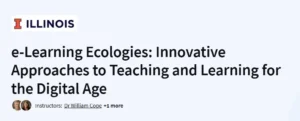What you will learn In International Humanitarian Law in Theory and Practice Course
- Fundamentals of International Humanitarian Law (IHL): Understand the core principles of IHL, including its purpose, history, and scope, and its role in regulating armed conflict and protecting individuals.
- Classification of Conflicts: Learn how to distinguish between international and non-international armed conflicts, and the legal consequences of each classification.
- Conduct of Hostilities: Explore the rules governing the conduct of hostilities, focusing on principles like distinction, proportionality, and necessity.
- Protection of Persons and Objects: Study the protections offered to civilians, prisoners of war, the wounded and sick, and humanitarian workers, as well as the safeguarding of cultural property.
- Implementation and Enforcement: Learn how IHL is implemented and enforced, including national and international legal frameworks and institutions.
- Contemporary Challenges: Analyze the modern-day challenges to IHL, such as the use of drones, cyber warfare, and the protection of journalists in conflict zones.
Program Overview
Introduction to International Humanitarian Law
⏳ 19 hours
Overview of IHL, its purpose, history, and scope in relation to armed conflict.
Classification of Conflicts
⏳ 19 hours
Learn about international and non-international armed conflicts and their legal implications.
Rules of Warfare and Conduct of Hostilities
⏳ 19 hours
Study the rules that govern the conduct of hostilities, such as proportionality and the protection of civilians.
Protection of Persons and Objects in Armed Conflict
⏳ 19 hours
Understand the protection of individuals and property during wartime, including civilians, prisoners, and cultural heritage sites.
Implementation and Enforcement of IHL
⏳ 19 hours
Explore the mechanisms for implementing and enforcing IHL, including international tribunals and national legal systems.
Contemporary Issues and Challenges
⏳ 19 hours
Analyze current challenges to IHL in modern warfare, including new technologies and asymmetric conflicts.
Get certificate
Job Outlook
- Proficiency in International Humanitarian Law (IHL) is valuable for roles such as:
- International Human Rights Lawyer
- Humanitarian Aid Coordinator
- Policy Advisor for NGOs or Government Agencies
- Legal Advisor for International Organizations
- Skills acquired in this course are applicable across various sectors, including humanitarian organizations, governmental agencies, and international law firms.
- Completing this course can enhance your qualifications for positions requiring expertise in international law, human rights, and humanitarian aid in conflict zones.
Specification: International Humanitarian Law in Theory and Practice
|
FAQs
- No prior law experience is required.
- Designed for beginners and professionals from various fields.
- Introduces core legal concepts and frameworks gradually.
- Uses real-world examples to explain complex legal principles.
- Yes, it provides practical knowledge applicable to humanitarian organizations.
- Offers understanding of legal protections in conflict zones.
- Helps develop skills for compliance, advocacy, and program planning.
- Prepares learners for roles in NGOs, international agencies, and policy work.
- Yes, it balances theoretical frameworks with real-world case studies.
- Includes examples of conflict scenarios and humanitarian responses.
- Teaches application of law in field operations.
- Encourages critical analysis of ethical and legal challenges.
- Yes, it provides insights into legal obligations during armed conflict.
- Discusses rules of engagement, protection of civilians, and rights of combatants.
- Helps military or peacekeeping staff understand international norms.
- Supports ethical decision-making in high-pressure scenarios.
- Yes, it covers mechanisms for addressing violations, such as tribunals and UN procedures.
- Teaches documentation, reporting, and legal recourse methods.
- Explains responsibilities of states, organizations, and individuals.
- Prepares learners to analyze and respond to breaches in real-world contexts.





